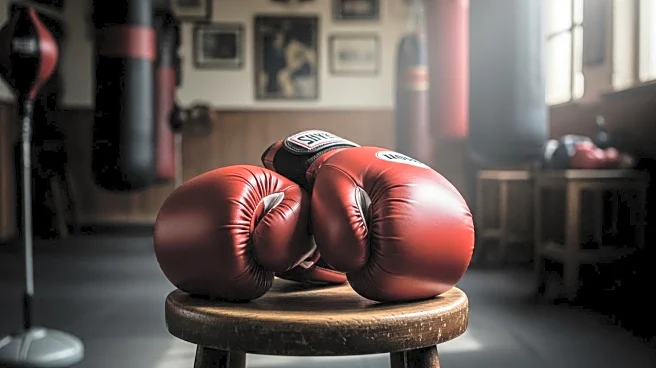What's Happening?
Ricky Hatton, a renowned boxing champion, has died at the age of 46 at his home in Greater Manchester. According to Greater Manchester Police, there are no suspicious circumstances surrounding his death. Hatton was preparing for a comeback fight against Eisa Al Dah scheduled for December 2, marking his return to the ring since 2012. Throughout his career, Hatton achieved significant victories, including a win over Kostya Tszyu in 2005 and a knockout of Carlos Maussa. He faced notable opponents such as Floyd Mayweather Jr. and Manny Pacquiao, although he was defeated in both matches. Hatton was open about his personal struggles with depression and alcohol abuse, which he discussed publicly after retiring from boxing.
Why It's Important?
Ricky Hatton's death marks a significant loss for the boxing community and sports world at large. As a former champion in the welterweight and light-welterweight divisions, Hatton's career was marked by impressive achievements and memorable matches. His openness about mental health and substance abuse issues has been influential, encouraging discussions around these topics within sports. Hatton's planned return to boxing was highly anticipated, and his passing leaves a void in the sport, affecting fans and fellow athletes who admired his resilience and talent.
What's Next?
The boxing community is likely to honor Ricky Hatton's legacy through tributes and memorials. His scheduled fight on December 2 will be reconsidered, and discussions may arise about how to best commemorate his contributions to the sport. Additionally, Hatton's candidness about his personal struggles may continue to inspire conversations about mental health support for athletes, potentially influencing policies and support systems within sports organizations.
Beyond the Headlines
Ricky Hatton's life and career highlight the challenges athletes face beyond their professional achievements. His struggles with depression and substance abuse underscore the importance of mental health awareness and support in sports. Hatton's story may prompt further examination of how sports organizations can better support athletes dealing with similar issues, fostering a more holistic approach to athlete well-being.








